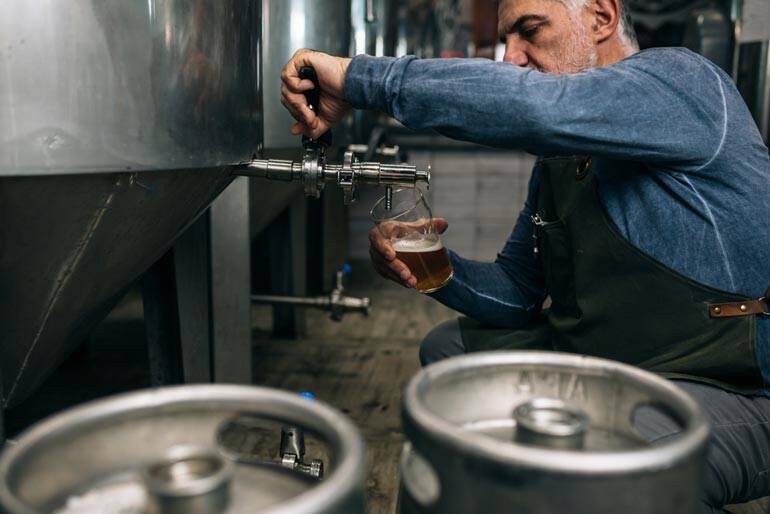Start 14-Day Trial Subscription
*No credit card required

Brewing a Profitable Business: 8 Financial Tips for Starting Your Own Brewery
Want to start a brewery but need some financial guidance? This guide covers everything from research and financing to location and quality control.
Microbreweries have become increasingly popular over the years, providing beer lovers with unique, high-quality craft brews. Starting a microbrewery can be a challenging but rewarding endeavor, and it’s clear to see why people want in on this growing industry.
Many microbrewery owners start out as hobbyists. They begin homebrewing for friends and neighbors and realize that they have what it takes to start brewing in a more serious manner. Brewing good beer is a labor of love, and something many people feel connects them to their senses. It’s a process of tasting, carrying equipment, becoming familiar with ingredients and noticing small signs that your beer brewing is on track. But turning it into a business requires more than good brewing sense. You also need to be financially savvy and to ensure that your venue is going to profit.
If you’re planning on starting your own brewery, these tips will help.
Research Your Profit Potential
Before you start your microbrewery, you need to do your research. This includes studying the market, researching your competition and understanding the legal requirements. Find out what types of beer are popular in your area, and what your target audience is looking for in a craft beer.
A lot of people say the craft beer industry is already oversaturated. But this is true for many industries, and yet newcomers can still thrive. While many brewing companies try to appeal to as many different niches as possible, most beer drinkers look for a good-quality, standardized product that competes with the competition in price and ease of access. Speak to your beer-drinking friends and conduct surveys to determine what’s needed in the industry and what’s going to be profitable.
Create a Business Plan
A solid business plan is essential for any business, and a microbrewery is no exception. Your business plan should include a detailed financial projection, market analysis, and marketing strategy. It should also outline your business structure, mission statement and long-term goals.
Use the research you’ve done prior to your business plan to construct a business model that makes sense. Do you want to sell from a taproom, from local liquor stores or via an online delivery service? What type of license do you need to make this work?
Choose a Strategic Location
Location is critical for any business, and a microbrewery is no exception. You need to choose a location that’s easily accessible, has ample parking and is in a high-traffic area. Additionally, you need to consider the zoning regulations, utility costs and potential competition. But above all, you need to ensure that your location is within your budget. If you over capitalize on your location, you’ll pour your profits down the drain.
If you’re not looking to buy a taproom, where can you brew from that can generate maximum yield at minimal transport costs? Is it a smaller warehouse closer to the local bars, or a larger facility on the edge of the city close to transport routes? Your location is determined by your business – and your capital.
Secure Financing
Speaking of capital, starting a microbrewery is a capital-intensive venture, and you’ll need financing to cover your startup costs. You can apply for a business loan, seek out investors or use personal funds.
If you’re looking for investment right off the bat, you need a watertight business model. In the saturated brewing industry, you’ll need to convince possible financiers why they should have faith in your business model. You’ll also have to convince them that you’re aware of their concerns and the risks and have solutions ready.



